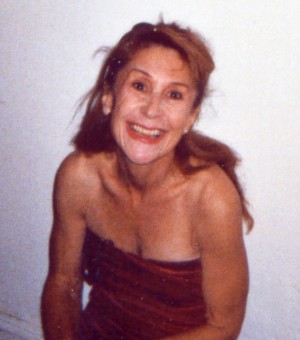New York Poet Tsaurah Litzky Cleans the Duck and Makes It Shine
GALO: You’ve said that Bukowski is one of your favorite writers and you wrote a play about him. Would you describe what it is about him that you love and what the play is about?
TL: I love Bukowski’s guts, vulagarity, and ability to take it on the chin; his life of excesses, his brilliance, and his visionary reflections on the American class system, among other things. My play, Barfly Redux, is a satire inspired by the movie Barfly. It takes place mostly in a saloon.
GALO: The poet Li-Young Lee was quoted once in an interview saying: “The paradigm of poetry is DNA; the most amount of information packed into the least amount of space.” Into what kind of space would you say your poetry fits into?
TL: My poetry doesn’t fit into any particular space. My best hope is that it is elastic and delicious like Turkish taffy and the reader wants to chew it around in their mind.
GALO: In my readings of CTD I get the impression there are several ghosts: William Blake, Allen Ginsberg, Isaac Bashevis Singer and your father Lenny, who come to visit and perhaps help push your pen along. What kind of influence might these spirits hold over you?
TL: I take spirits and spirit visitations very seriously. I welcome all spirits into my subconscious mind to help me write poetry.
GALO: I was so pleased to be able to attend your reading of CTD poems at the Bowery Poetry Club. How do you feel about promoting your new book and about reading as performance?
TL: I have to promote it, it is my creation. Also, I believe as the writer V.S. Naipaul said, the work is not complete until it finds an audience. I want, hope, to find many audiences for Cleaning The Duck. I believe every reading is a performance. The reader is on stage and the stage is the world.
GALO: You mentioned to me before that your new book is not a collection but a selection. What is the difference?
TL: I wrote something like 200 poems, this is including my 60 or so haikus. If I published all of them it would be a collection. Instead I chose my favorites; I selected them and made them into the book. Therefore Cleaning The Duck is a selection.
GALO: How important to your development as a writer is the fact that you were born and raised in New York City?
TL: I wasn’t born in New York City. I was born in Washington DC. We moved here when I was three weeks old. Growing up I had the benefit of the excellent public schools. Yes, New York City schools were once excellent [sigh], and the branch libraries. As a child I read my [way] through the entire Young Adult section. Growing up in this great city of light certainly brightened my consciousness.
GALO: If you had come of age in the 20s, how likely do you think the chances would have been that you might have packed up and moved to Paris along with Ernest Hemingway, Gertrude Stein? How do you feel about the Golden Age?
TL: Coming of age in the 1960s was a Golden Age for a hippy girl like me. In any case, I was never one to follow the popular taste of the current ‘hip’ or ‘cool’ crowd, so I doubt I would have followed those artistes abroad.
GALO: When did you first aspire to be a poet and what encouragement did you receive?
TL: I started writing when I was seven. I got my first journal as a gift. I didn’t ‘aspire’ to be a writer. I was a writer starting with journal entries, poems, [and] plays. I received little encouragement.
GALO: Many different writers have influenced your work. From the time you were a little girl you note that your father recited Blake’s “The Tiger” and your mother read to you from Henry Longfellow. What kind of an impact did being exposed to poetry at such an early age play in your development as a poet?
TL: My parents and other family members read to me all the time. Also I learned to read when I was three. My aunt taught me, she was an early childhood teacher. What developed in me was (is) a love of the language, which contributed to me becoming a poet.
GALO: How did “The Tiger” play in your mind then? Was it a comfort or a fright?
TL: I don’t remember but I have always loved wild animals. There is a wild animal curtain in my kitchen and wild animals figure prominently in the collages I make. I am also a collage artist and the cover of Cleaning The Duck is an image of one of those collages, and has a wild animal included — a giraffe.
GALO: During your school years were there teachers or students that might have contributed to your enthusiasm for writing?
TL: No teachers or fellow students contributed to my enthusiasm for writing. As I said, my family helped spark my love affair with the written word.
(Article continued on next page)











